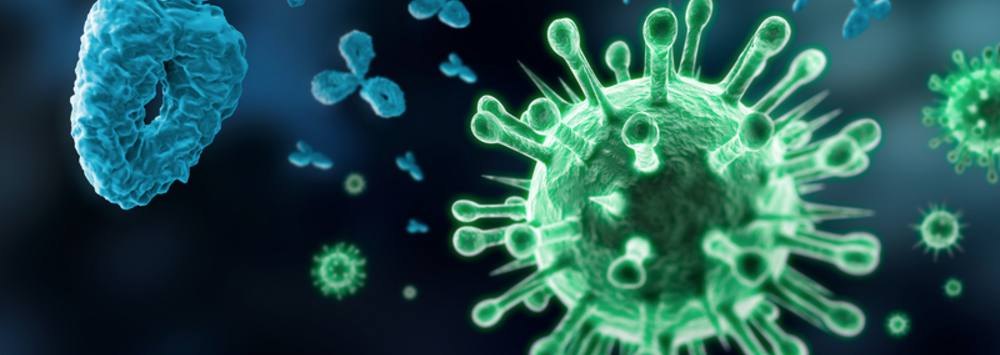Neutron crystallography is one of the indispensable modern analytical tools for obtaining insight into the life cycle of viruses.
In simple terms, crystallography provides us with three-dimensional pictures of the various biochemical engines that the virus relies upon for reproduction. If these engines can be blocked through appropriate medication e.g. by introducing a molecule into the site where the biochemical action takes place, then the viral disease can be cured.
Many of these engines manipulate hydrogen nuclei. This is where the neutrons come in. They are ideal for detecting hydrogen nuclei in the structure. The ILL is the leading neutron facility in the domain of biological macromolecular neutron crystallography. Recent studies on HIV-1 protease (a biochemical engine that – like a pair of scissors – cuts long polymer chains and is essential for the life-cycle of the HIV virus) performed at the ILL’s instrument LADI perfectly illustrate the case. The neutron data allows to better design the drug that blocks the scissors in their active site.
SARS-CoV-2 offers many potential targets for such neutron studies. Given the relevance of this research, ILL has decided -in the framework of the Endurance upgrade programme– to enhance capacity by adding another instrument (DALI) to its instrument suite. DALI was just in the process of being assembled when the lock-down hit the ILL activities. The installation will be completed after the lock-down and the instrument will be commissioned during the next cycle.
About ILL
The Institut Laue-Langevin (ILL) is an international research organisation that is a world leader in Neutron Science. Since its foundation in 1967, the Institute is a shining example of scientific cooperation. Presently 10 European countries (Spain, Switzerland, Austria, Italy, Czech Republic, Sweden, Belgium, Poland and Slovakia) ensure the necessary financial support for the ILL operation under the governance of 3 Associate Member countries: France, Germany and The United Kingdom. The research conducted at the ILL is dedicated to fundamental research (60%) as well as societal challenges research (40%). It covers a wide range of disciplines such as biology, (green) chemistry, materials science, condensed matter physics, as well as nuclear and particle physics.



